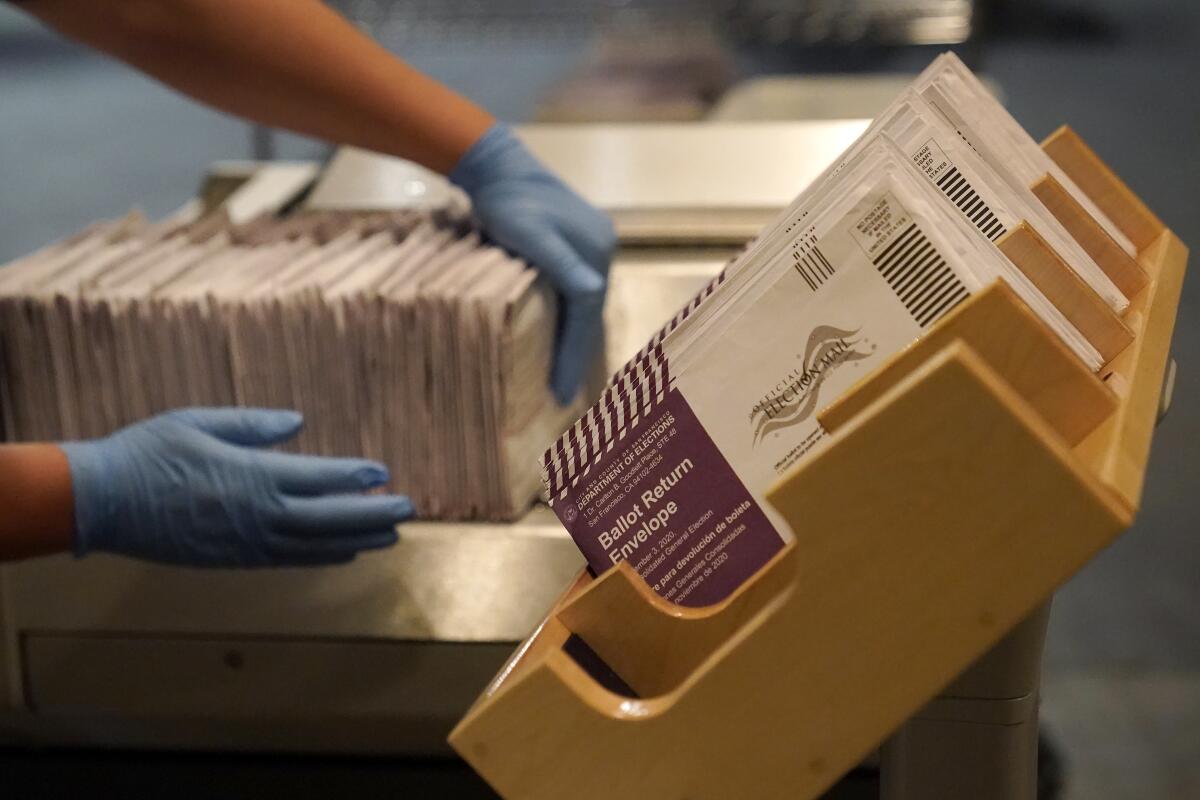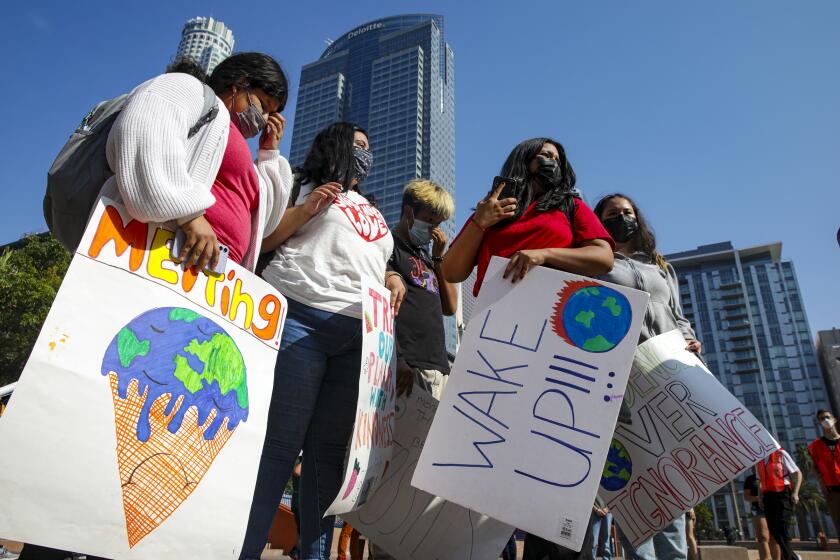Opinion: High-stakes politics have us seeking normalcy. But what if uncertainty and crisis are the norm?

Whether the attempted insurrection, the pandemic, the two assassination attempts on Donald Trump, or something else, there has been enough craziness since 2020 to warrant social panic. We frequently utter phrases such as “We live in uncertain times,” “We are going through a moment of crisis” or “This is not normal.” But when are we not in times of uncertainty, crisis or abnormality?
We like to think that some secret formula can help us deal with turbulent times. Some call upon their faith to walk them through the crises of modern life; others take up yoga, medicate or meditate; some just give up in either monastic resignation or cynical hopelessness. Many of us, however, quietly panic.
We react this way because uncertainty and insecurity seem to persist, even though someone, at some point, convinced us that precarious times were temporary. I blame insurance commercials.
Whoever it was, we panic because we desperately want the uncertainty and crisis to end.
The election of Donald Trump was a turning point for these young adults, akin to 9/11 for millennials. Gen Zers realized as kids that American exceptionalism was a lie.
But it doesn’t. It can’t. The universe is built on tumultuousness and violence. Galaxies crash against one another, and black holes swallow stars whole. Here on Earth, humans find that as soon as one crisis is over, another one rolls in.
So what should we do? We can try harder to find the certainty and normalcy that once felt promised. Or we can stop trying to fix the crises and surrender to the chaos (“Let go and let God!” as some in Alcoholics Anonymous might say).
Another option is to change our mindset. To start, we should stop thinking uncertainty, crisis and insecurity are temporary.
I teach and write about Mexican philosophy, and a key insight from this tradition is that if anything is certain, it’s uncertainty; that insecurity and crisis are “states of our being.” Mexican philosophers call this state “accidentality” (accidentalidad), the notion being that the surety we’re after is just an ideal that has never been and never will be achieved. In fact, for Mexican philosophers, accidentality describes a way of life for people who have never known anything but pain and suffering — a condition they call “catastrophism” (catastrofismo).
In a way, catastrophism describes us all, though some recognize it more clearly than others. “Our normality is our crisis,” wrote philosopher Emilio Uranga, highlighting the notion that “normal” human experience knows little about stability, security and permanence. Life is unscripted and random. We’ve often been told otherwise, but usually in an attempt to control how we live or think. Uranga tells us that we must be distrustful of those narratives and exhibit a certain “untrustworthiness” (desconfianza) toward those who claim “mastery over the accident.”
A new documentary, ‘Bad Faith,’ explores the racist, reactionary movement driving the success of Donald Trump and being endorsed by the likes of Josh Hawley.
Political platforms often make such claims: America will get back to normalcy if we adopt the principles of Project 2025; illegal immigration, excessive inflation and pandemics will go away if we elect Trump; the culture wars over gay marriage, gender identity and the teaching of U.S. history will disappear if we elect Kamala Harris. Voting for one party rather than the other, they promise, will make life stable, set things right and align us with God’s will or natural selection in such a way that we will suffer less. But both conservative and liberal dreams are really unreachable ideals that exist only in our imaginations.
Better to remember that Mexican philosophers have it right: Uncertainty and crisis are our default. Times of surety and calm are the rare moments when we need to stock up on faith, philosophy, insight, wisdom and grace so that we can face the rest of life without panicking or jumping off political or existential cliffs.
Let’s take a lesson from these thinkers and own our accidentality, and refrain from lying to ourselves about certainties and cure-alls. We will be OK, but probably not because we’ve overcome crisis, uncertainty and insecurity themselves. It will have more to do with getting used to them.
Carlos Sánchez is a professor of philosophy at San José State University and the author of “Blooming in the Ruins: How Mexican Philosophy Can Guide Us Toward the Good Life.”
More to Read
A cure for the common opinion
Get thought-provoking perspectives with our weekly newsletter.
You may occasionally receive promotional content from the Los Angeles Times.












